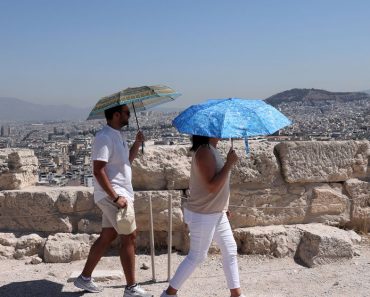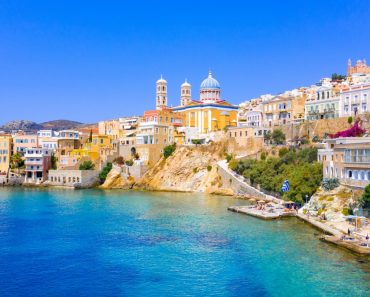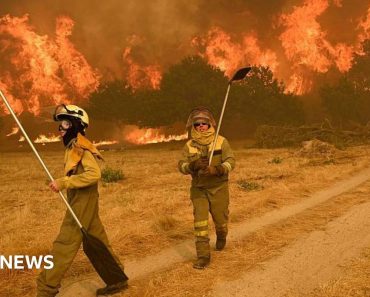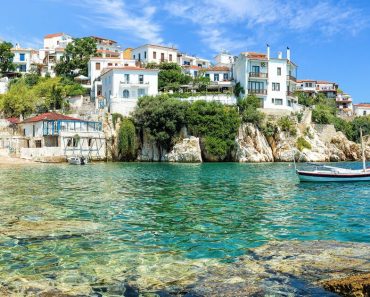Sunday, July 27, 2025
Ireland has updated its travel advice for Greece and Turkey as deadly wildfires rage through popular tourist areas and turn holiday hotspots into disaster zones. And with at least 13 deaths in Turkey and more than 1,700 evacuations, as well as new safety precautions in place in parts of Greece, including on Santorini, Irish officials are advising travelers to monitor local news, adhere to emergency advice, and reconsider trips to affected areas as the safety and environmental risk continues to rise.
Ireland Issues Fresh Travel Advisory as Wildfires Spread Across Greece and Turkey, Jeopardizing Summer Holidays
Irish citizens planning holidays to the Mediterranean are being strongly advised to exercise caution as devastating wildfires continue to tear through parts of Turkey and Greece. The escalating emergency has led to widespread evacuations, multiple fatalities, and the classification of several tourist regions as disaster zones—prompting the Irish government to issue updated safety guidance for travelers heading to either destination.
Turkey Faces Escalating Wildfire Emergency
Turkey is currently battling a massive wildfire crisis, with blazes raging across several provinces and emergency services stretched thin. At least 13 lives have been lost, including a firefighter who perished while attempting to bring the flames under control. More than 1,700 residents have been evacuated from at-risk areas, and as many as 76 active fires are still burning.
The worst-hit regions include Bursa, Karabük, Uşak, and Kahramanmaraş, where local authorities continue to battle intense heat, smoke, and destruction. The government has declared disaster zones in parts of Adana, Mersin, Eskişehir, and Karabük, making them largely inaccessible to tourists and travelers. Air quality has plummeted, infrastructure has been damaged, and the risk of further escalation remains high.
As the fires show no signs of slowing, Turkish officials are urging citizens and foreign tourists alike to stay alert, comply with emergency measures, and avoid unnecessary travel to affected areas.
Greece Struggles with Wildfire Outbreaks on Mainland and Islands
At the same time, Greece is facing a wave of wildfires fueled by record heat and strong winds. The Irish Department of Foreign Affairs (DFA) has issued a travel alert urging travelers to remain vigilant, follow local guidance, and stay up to date on regional fire conditions.
While there are currently no formal travel bans to Greece, the government has implemented emergency safety measures in certain locations, including the popular island of Santorini, where restrictions will remain in place through October. Visitors to the island must adhere to newly introduced fire prevention protocols, such as avoiding outdoor barbecues, campfires, or activities that could ignite a blaze.
Emergency teams are on standby across several Greek regions as the country enters what is traditionally the peak of its fire season.
Irish Tourists Urged to Reassess Travel Plans
With parts of both Turkey and Greece now facing environmental emergencies, Irish holidaymakers are being urged to take stock of their travel arrangements. Traditionally, both countries attract thousands of Irish tourists during the summer months due to their scenic coastlines, cultural landmarks, and warm weather. However, the ongoing wildfires are creating rapidly changing conditions that could disrupt flights, ferry services, and access to resorts and villages.
Travelers with existing bookings are encouraged to check with their airlines or tour providers, review cancellation policies, and consult local embassy advisories for up-to-date information. Those with flexible plans might consider postponing or redirecting their trips to destinations currently unaffected by the crisis.
Safety Guidelines Issued for Travelers
In response to the fire outbreaks, the DFA has released practical guidance for any Irish citizens currently in Turkey or Greece, or those intending to visit. Key safety tips include:
- Check local fire risk maps before traveling to new regions within either country.
- Monitor official emergency channels and weather alerts via social media or national services.
- Avoid traveling to declared disaster zones or areas with active evacuation orders.
- Pack emergency essentials, including bottled water, face masks, chargers, and medications.
- Ensure travel insurance covers natural disasters, cancellations, and emergency evacuations.
Remaining alert and prepared is now more important than ever, particularly for those staying in rural or forested areas.
Government Assistance for Irish Citizens Abroad
The Irish government has activated emergency consular support for citizens who may be affected by the crisis. Tourists in Greece or Turkey experiencing danger or travel issues are advised to contact local Irish embassies for support. The DFA is also providing regular travel updates via its official website and social media platforms.
Citizens are advised to register their travel details online, which can expedite assistance in case of an emergency or sudden evacuation order.
Hotels and Travel Operators Respond
In a show of flexibility and concern, many hotels and travel operators in both Greece and Turkey are offering rebooking options, free cancellations, and assistance with relocation for affected guests. Some tour companies are adjusting itineraries or rerouting tourists to safer regions as wildfires continue to impact normal operations.
Meanwhile, firefighting crews are receiving reinforcements from neighboring EU countries, with aerial support and equipment pouring in to help contain the blazes. Though the situation remains precarious, authorities are hopeful that improved weather conditions may slow the spread of fires in the coming days.
Climate Crisis Drives Fire Frequency
This summer’s wildfires are the latest in a growing trend of extreme weather events affecting Mediterranean destinations. According to environmental experts, climate change is playing a direct role in increasing both the frequency and severity of these fires. Warmer temperatures, prolonged droughts, and unpredictable wind patterns are making it harder to manage natural disasters and putting additional pressure on the region’s infrastructure.
As a result, more tourists are being forced to confront the reality that environmental instability can turn a dream vacation into a dangerous ordeal almost overnight.
Irish holidaymakers are advised to exercise caution, put their personal safety first and to follow travel advice published by the government. If travel can be deferred or redirected, then perhaps this would serve to mitigate potential peril and provide some relief to already stretched local resources.
Ireland has issued a new travel warning for Greece and Turkey due to raging wildfires that have forced mass evacuations and turned key tourist areas into high-risk zones. Travelers are urged to follow local safety guidelines and monitor conditions closely as the situation remains volatile.
Travelers should be flexible, prepared and follow government guidance for up to date information.







